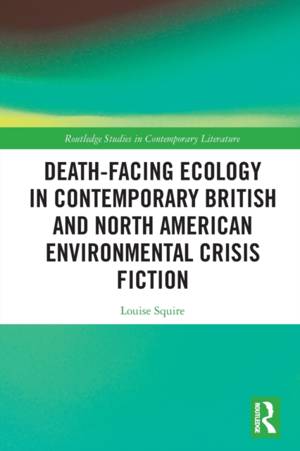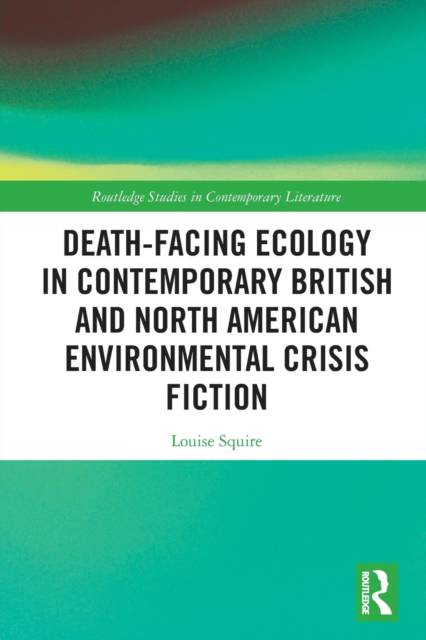
- Retrait gratuit dans votre magasin Club
- 7.000.000 titres dans notre catalogue
- Payer en toute sécurité
- Toujours un magasin près de chez vous
- Retrait gratuit dans votre magasin Club
- 7.000.0000 titres dans notre catalogue
- Payer en toute sécurité
- Toujours un magasin près de chez vous
Death-Facing Ecology in Contemporary British and North American Environmental Crisis Fiction
Louise SquireDescription
Recent years have seen a burgeoning of novels that respond to the environmental issues we currently face. Among these, Louise Squire defines environmental crisis fiction as concerned with a range of environmental issues and with the human subject as a catalyst for these issues. She argues that this fiction is characterised by a thematic use of "death," through which it explores a "crisis" of both environment and self. Squire refers to this emergent thematic device as "death-facing ecology". This device enables this fiction to engage with a range of theoretical ideas and with popular notions of death and the human condition as cultural phenomena of the modern West. In doing so, this fiction invites its readers to consider how humanity might begin to respond to the crisis.
Spécifications
Parties prenantes
- Auteur(s) :
- Editeur:
Contenu
- Nombre de pages :
- 176
- Langue:
- Anglais
- Collection :
Caractéristiques
- EAN:
- 9781032239293
- Date de parution :
- 13-12-21
- Format:
- Livre broché
- Format numérique:
- Trade paperback (VS)
- Dimensions :
- 152 mm x 229 mm
- Poids :
- 244 g

Les avis
Nous publions uniquement les avis qui respectent les conditions requises. Consultez nos conditions pour les avis.






